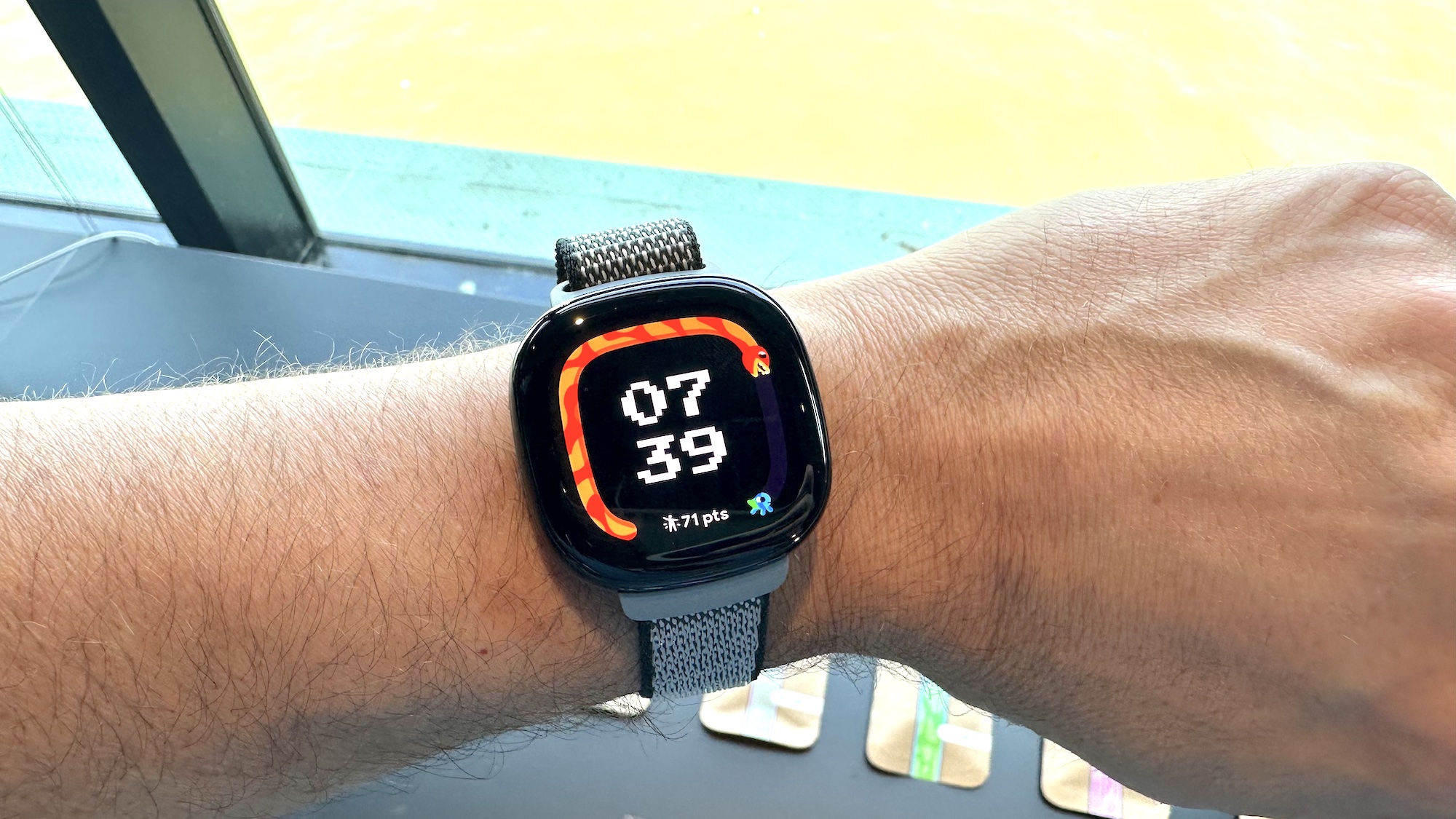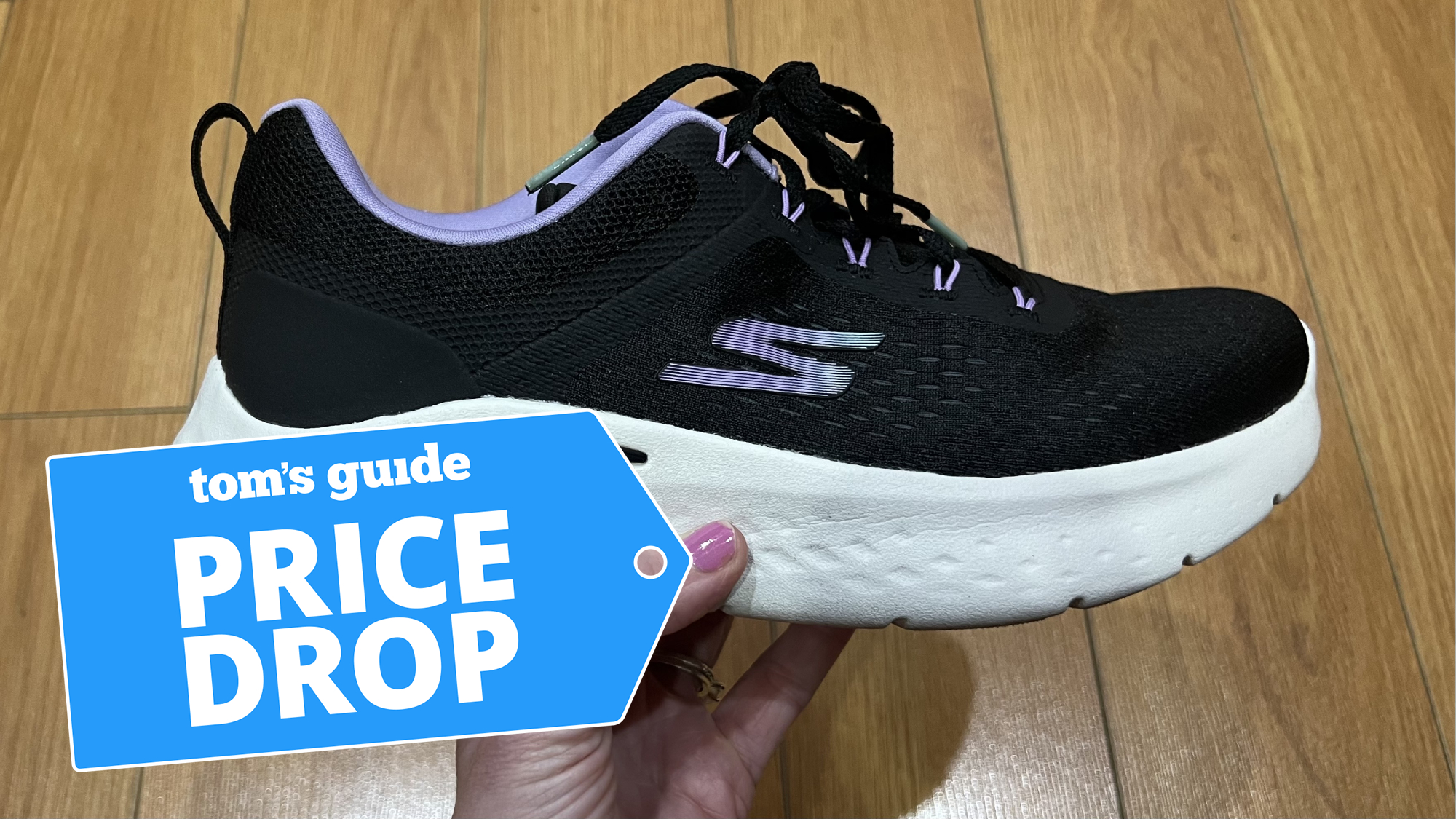Early Verdict
Fitbit redesigned its fitness tracker for kids — and parents — with a new interface and better messaging. But, it now comes with a monthly subscription.
Pros
- +
Fun kid-friendly interface
- +
Good communication features
- +
Nice (and rugged) design
Cons
- -
Requires monthly subscription
- -
Will need to be recharged every day
Why you can trust Tom's Guide
Fitbit is looking to combine one of the best fitness trackers and one of the best key finders in its new Fitbit Ace LTE, a smartwatch that not only encourages your kid to move more, but also lets you keep tabs on them throughout the day.
This completely redesigned kid-focused activity tracker, designed for children 7 and up has a new interface tailored toward tykes, with on-screen games that encourage physical activity. In addition, a communications tab makes it easy for your kid to send you messages and call if needed.
The Fitbit Ace LTE goes on sale on June 5 for $229 — plus an additional $10 per month in subscription costs. Is it worth it? We had a chance to check out the Fitbit Ace LTE in person; here's our initial impressions.
Fitbit Ace LTE: price and availability
The Fitbit Ace LTE can be preordered starting today (May 29) and will go on sale on June 5 for $229.
In order to properly use the watch, you'll also need to sign up for a subscription, which costs $9.99 per month or $119 per year. Annual subscribers also get an additional wristband, and if you sign up before August 31, you can get 50% off the subscription price.
The Fitbit Ace LTE costs more than most of the cheap smartwatches for kids than you can find on Amazon, but it's $70 less than the Apple Watch SE with GPS + Cellular (though you can currently find it for as low as $239).
Fitbit will sell six additional bands for the Ace LTE, which cost $34.95 each. The Fitbit Ace 3 will continue to be sold until inventory runs out.
Fitbit Ace LTE: design
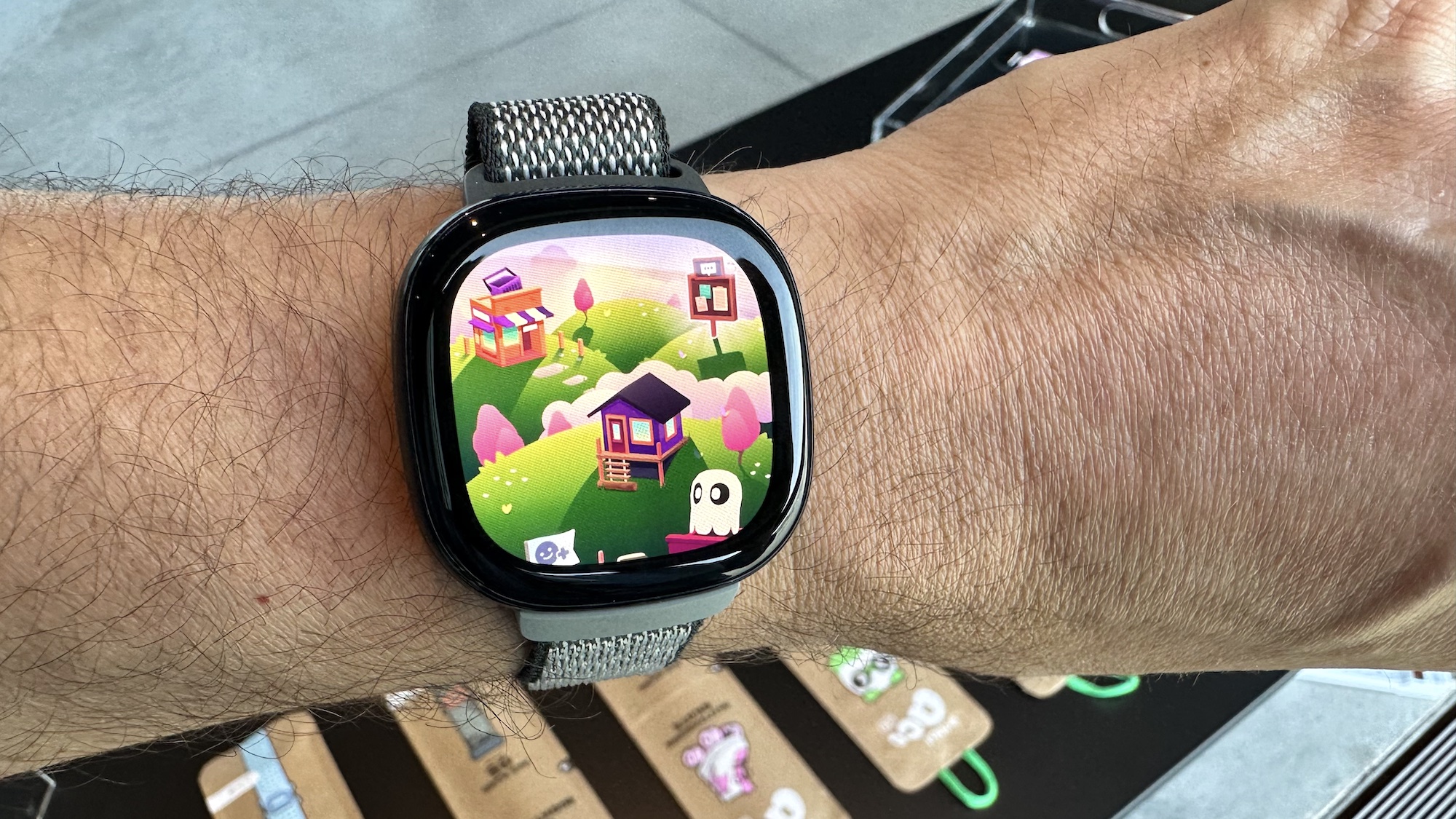
Size: 40mm
Display: 333 ppi OLED
Water resistance: 50m
Connectivity: 4G LTE, 802.11b/g/n (2.4 GHz), Bluetooth 5.0, NFC, GPS
Sensors: Optical heart rate, accelerometer, altimeter, magnetometer, ambient light, gyroscope
Battery life: 16 hours (328mAh)
Unlike the older Fitbit Ace 3, which resembled the rectangular Fitbit Inspire 3, the Fitbit Ace LTE looks like a junior, slightly bulkier version of the Fitbit Versa 4 or Fitbit Sense 2.
It has a squircle shape with a 40mm case, with two buttons on the right side. For a kid's tracker, it felt large on my wrist, so I'm curious to see how it will look on a child.
The Ace LTE will come in two designs: one with a light and dark gray color scheme, and the other with a white, green, and purple color scheme. The Fitbit Ace LTE is water resistant to 50 meters, and its screen is protected by Gorilla Glass 3.
Internally, the Ace LTE has the same components as the Pixel Watch 2: A Qualcomm SW510 processor, 32GB of storage and 2GB of RAM.
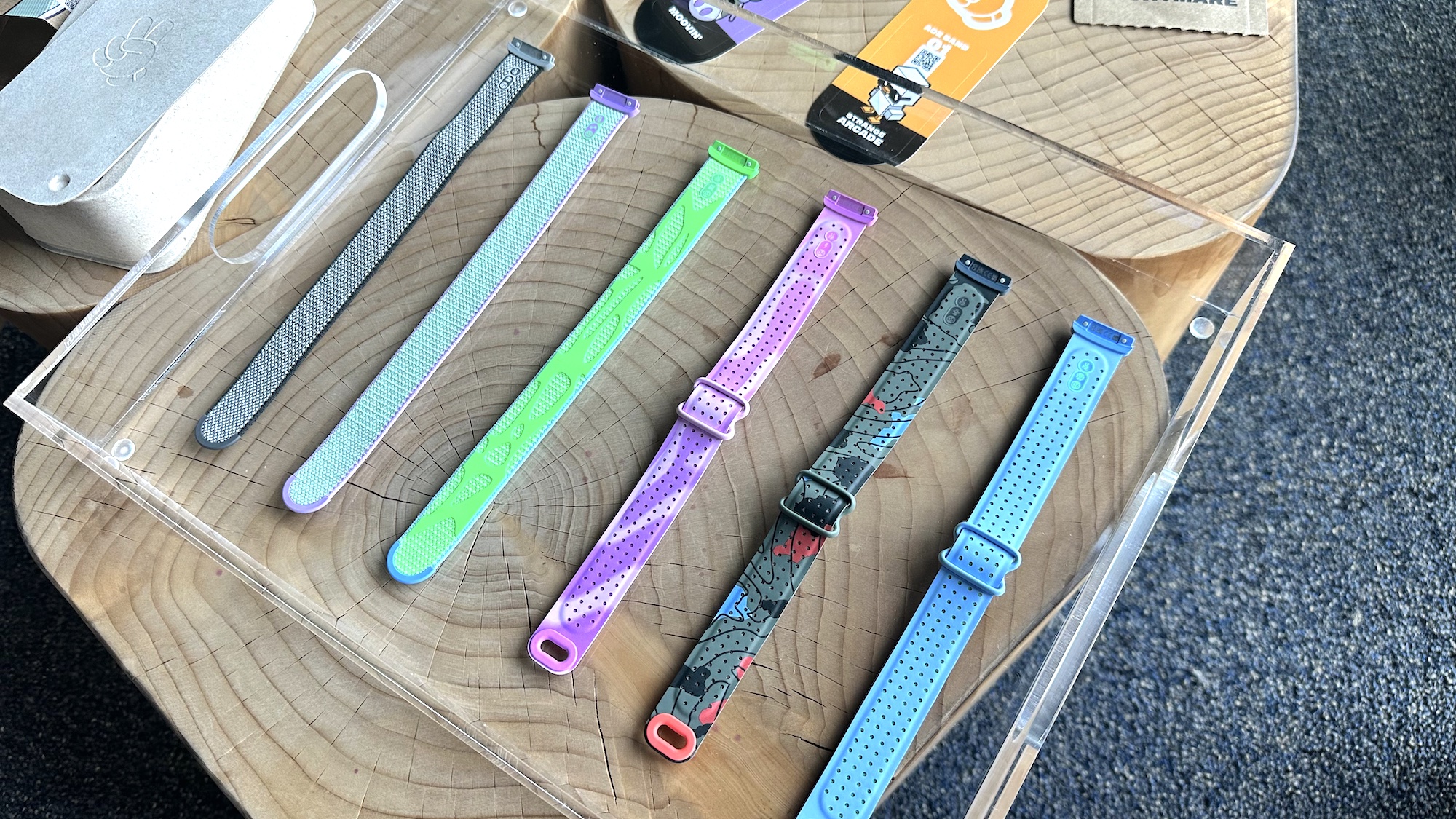
The watch will be customizable via rubber bumpers that snap around the face, as well as six swappable wrist bands. The wristbands have special coding inside so that, when they're connected to the watch, they'll unlock unique features in the watch itself, such as a watchface and items for your watch's avatar. For example, a basketball-themed band will let you put a basketball jersey on your avatar.
Fitbit Ace LTE: interface and activity tracking
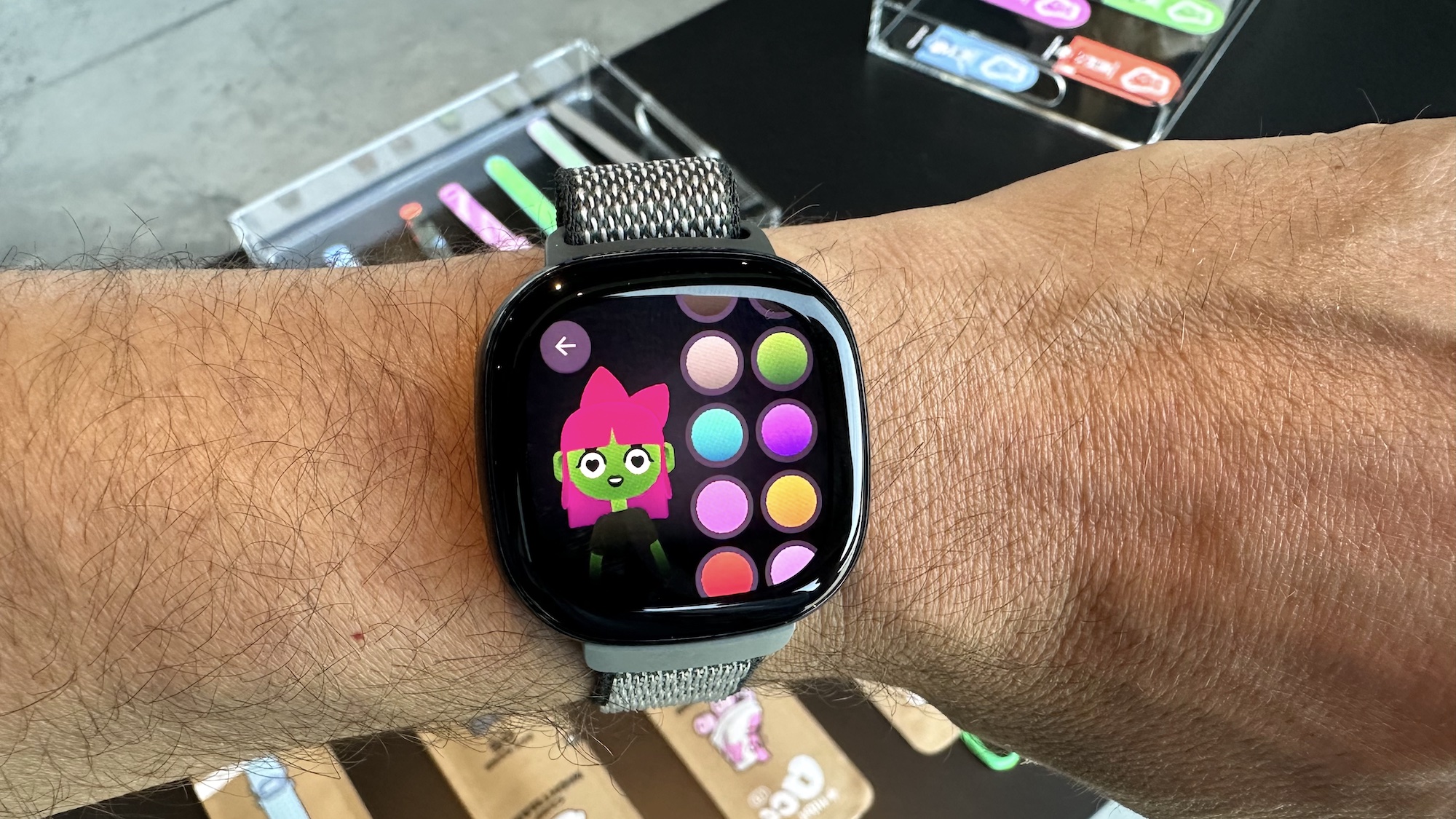
The Fitbit Ace LTE has a Tamagochi-like avatar called an Eejie, which your kid can customize with different clothes, hairstyles and accessories. The Eejie can move around a virtual environment, which can be populated with items that your child can earn by playing games on the watch. (Unlike a real Tamagochi, the eejie won't die if you don't use the watch, but it will get sad.)
However, all of the on-screen games have an element of real-world activity, so that unlocking everything in the watch requires your kid to move around. For example, a game might require your child to walk 200 steps or perform some other physical activity.
A Fitbit rep said that for every 15 minutes of on-screen gameplay, your child will have to do roughly 60 minutes of physical activity. As they complete games, they earn tickets which can be redeemed on the watch to purchase items for their avatar.
During a hands-on demo, I tried one of the games, which had me flick my wrist to cast a virtual fishing rod into a lake. When I hooked a fish, the watch buzzed for me to reel it in. Depending on the fish I caught, I received a different amount of tickets.
Additionally, the home screen of the Ace LTE will also offer insights, inspirations, and goals for your child to achieve that day. Similar to the Apple Watch, your kid can try and "close the circle" for the day's activities, but they'll still get a reward if they don't fully meet the goal.
Like Fitbit's Active Minutes metric, the Ace LTE has algorithms attuned to children's activities (like climbing on a jungle gym or running around) that record how strenuous an activity is and award points, respectively. Fitbit says that it was careful to make sure that the Ace LTE doesn't encourage kids to over-exert themselves.
Fitbit Ace LTE: parental tracking and management
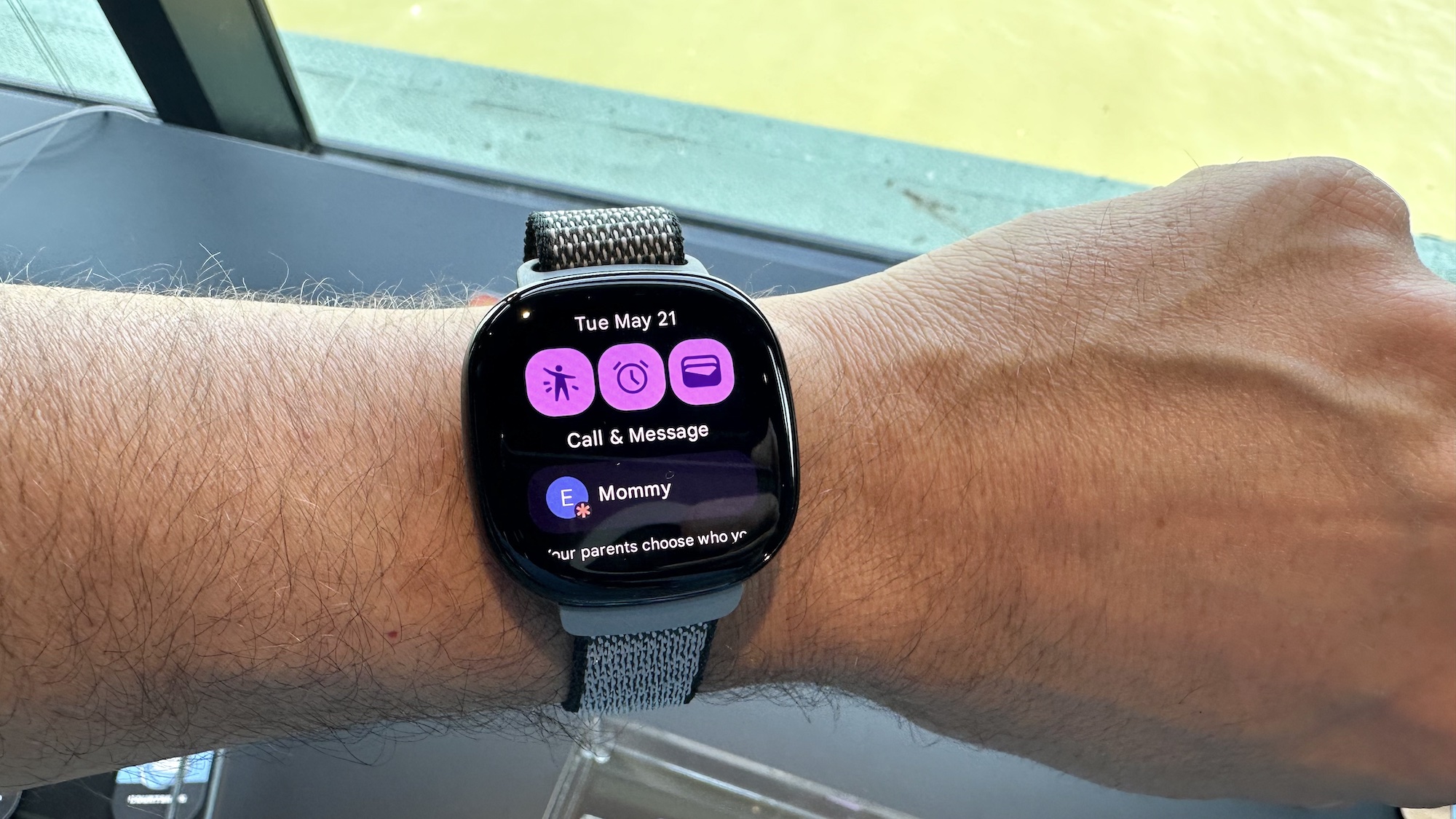
Unlike other LTE-enabled smartwatches, all communication through the Fitbit Ace LTE is done via the Fitbit Ace app (available for Android and iOS). That way, people can't randomly call or message the Ace LTE; parents must approve who can send messages to the watch.
Kids can communicate with their parents by either calling them, typing a message on the watch (a bit tedious, given its size), or by recording a message, which is then sent as an audio file to the Ace app.
If two kids have Ace LTE watches and are listed as approved contacts in the Ace app, their avatars can hang out with each other, but they can't send any messages back and forth. Fitbit says this is meant to discourage bullying.
Within the Ace app, parents can also track their child's location, and set up "School Time," which limits what they can do on the watch, so they can pay attention in class.
The Ace LTE also has NFC built in; in the near future, Google Wallet will be enabled on the watch, so parents can load the device with money so that their child can purchase things at stores without needing to carry around a wallet.
Fitbit also said that location data from the watch is deleted after 24 hours, and health data is deleted after 35 days on a rolling basis.
Fitbit Ace LTE: battery life
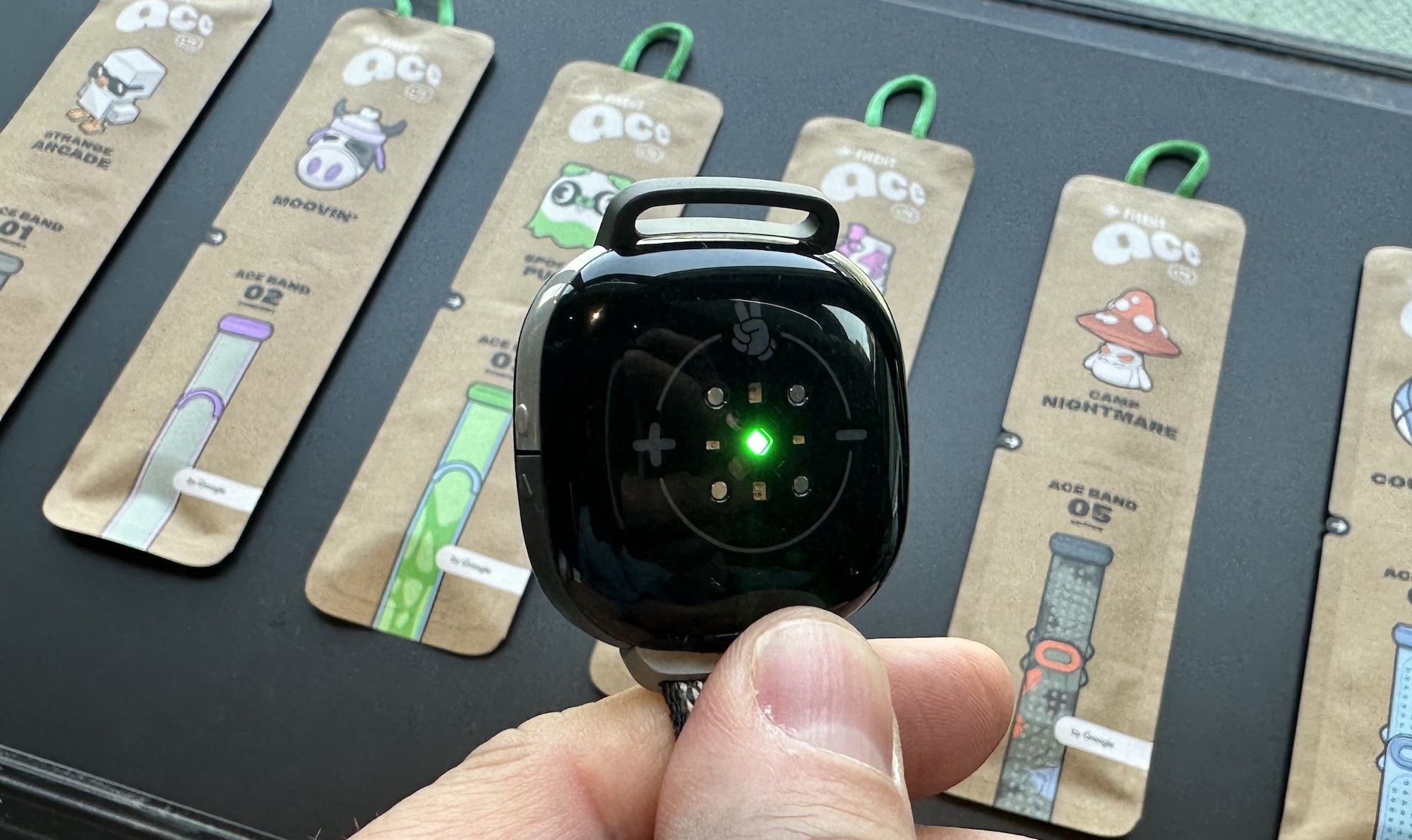
Fitbit says the Ace LTE's 328mAh battery should last around 16 hours on a charge. That's a bit less than we've seen from some of the best Fitbits, but it should get your kid through the whole day. Just remind them to pack their charger if they bring it to sleep-away camp.
A 30-minute charge should restore the watch to 60% battery life (about 11 hours of use), while a 70-minute charge should top it off.
Fitbit Ace LTE: Outlook
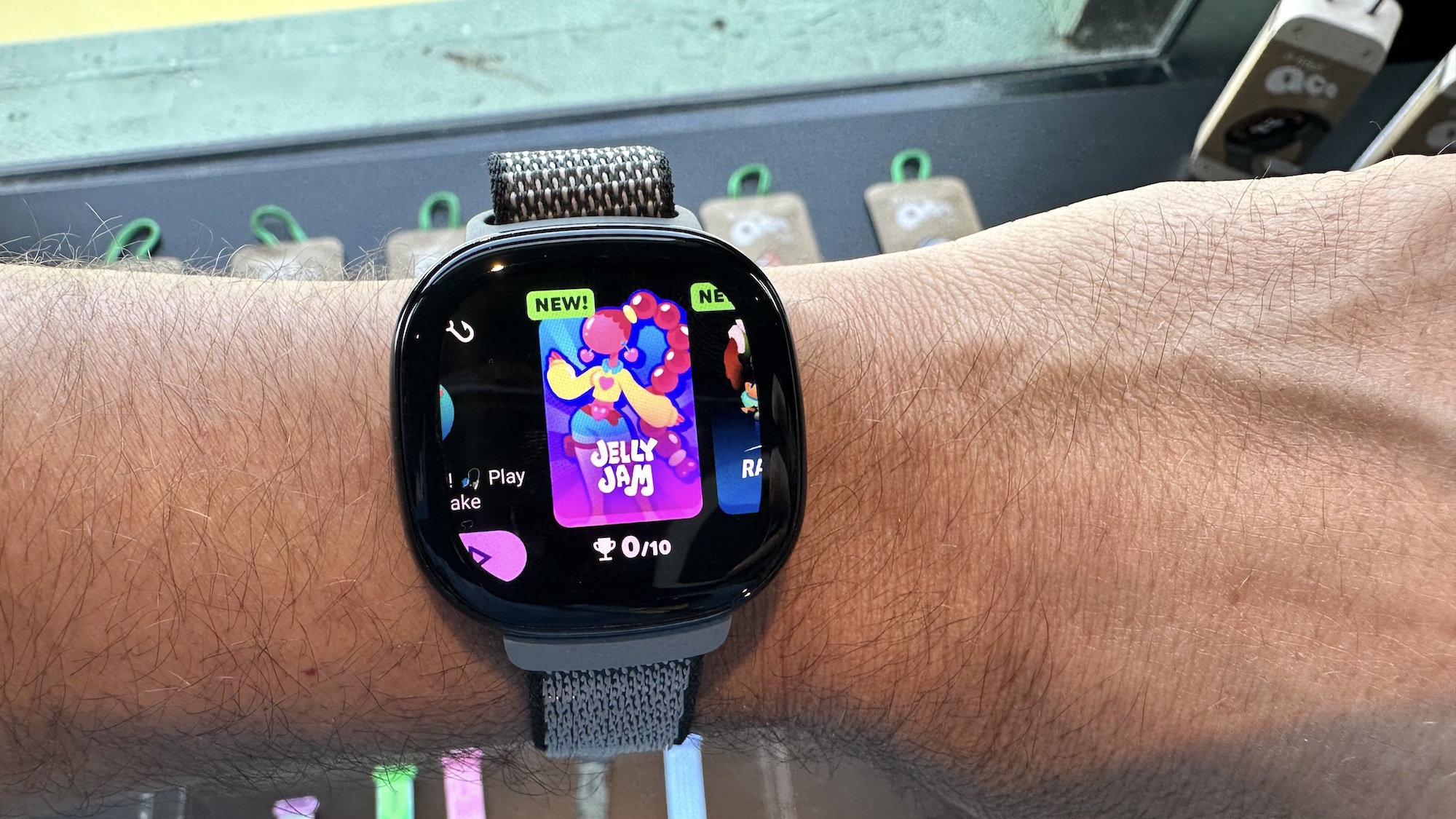
The Fitbit Ace LTE definitely feels like a well thought-out activity tracker for kids and parents. The games and avatar feel skewed towards the younger end of the targeted age group, so as the years go on, I'll be curious to see if Fitbit adapts the interface to appeal to tweens, or if they'll simply want to move on to an Apple Watch.
I'm also curious to see how the Ace will fit on smaller wrists — though many of the cheap fitness trackers for kids are even bulkier. I do wish the rated battery life were a bit longer, as I feel like parents will have to set a reminder to themselves to charge up the watch each night.

Michael A. Prospero is the U.S. Editor-in-Chief for Tom’s Guide. He oversees all evergreen content and oversees the Homes, Smart Home, and Fitness/Wearables categories for the site. In his spare time, he also tests out the latest drones, electric scooters, and smart home gadgets, such as video doorbells. Before his tenure at Tom's Guide, he was the Reviews Editor for Laptop Magazine, a reporter at Fast Company, the Times of Trenton, and, many eons back, an intern at George magazine. He received his undergraduate degree from Boston College, where he worked on the campus newspaper The Heights, and then attended the Columbia University school of Journalism. When he’s not testing out the latest running watch, electric scooter, or skiing or training for a marathon, he’s probably using the latest sous vide machine, smoker, or pizza oven, to the delight — or chagrin — of his family.
